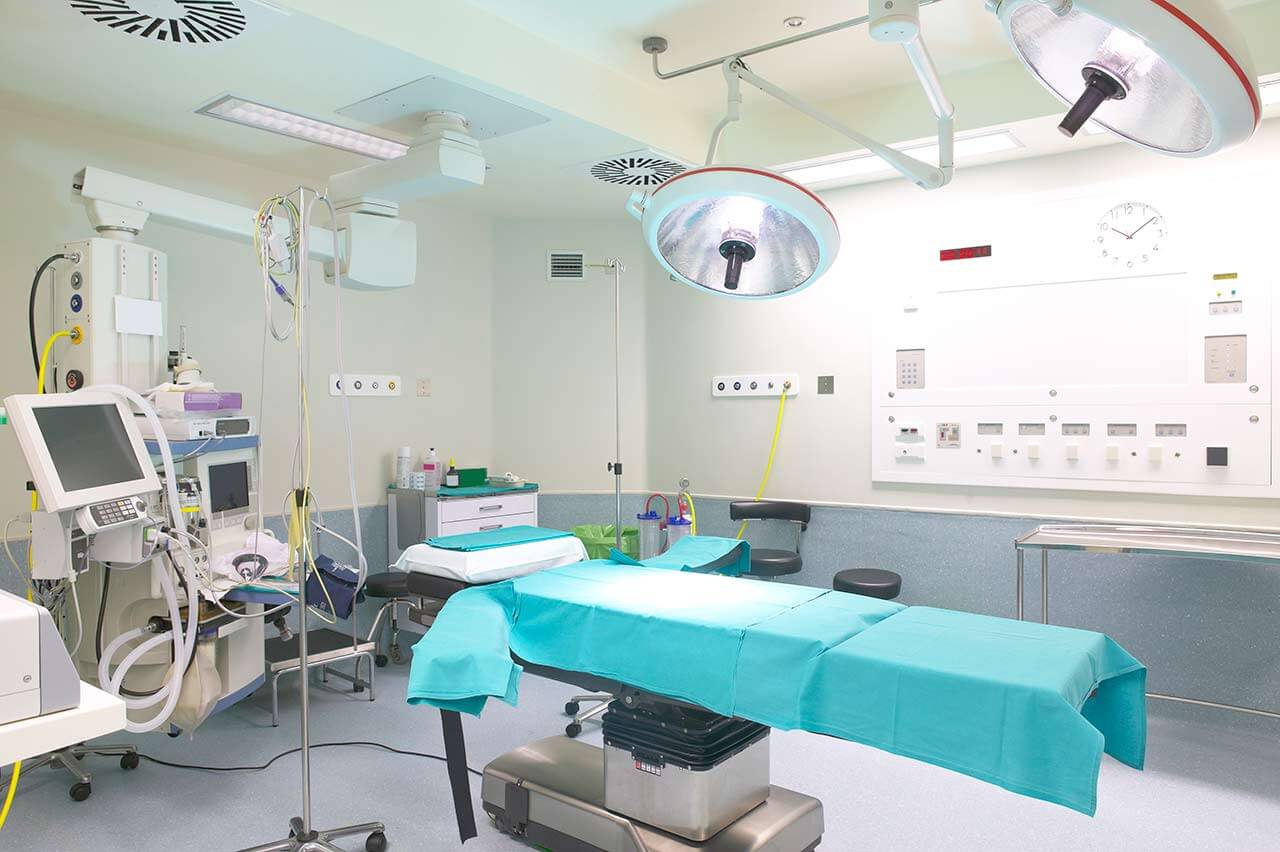
About the Department of Adult and Pediatric Neurosurgery, Spinal Surgery at Westpfalz Hospital Kaiserslautern
The Department of Adult and Pediatric Neurosurgery, Spinal Surgery at the Westpfalz Hospital Kaiserslautern offers the full range of diagnostics and surgical treatment of diseases of the central and peripheral nervous system. The department's specialists regularly provide assistance to patients with spinal cord and brain tumors and injuries, nerve ending lesions, functional disorders of the nervous system, vascular diseases and cerebral malformations, herniated intervertebral discs, spinal stenosis. As for the common diseases in young patients, it is worth highlighting hydrocephalus and meningomyelocele, as well as various malignant neoplasms. The department has at its disposal advanced diagnostic and therapeutic equipment, and the long-term experience of the medical staff allows high-precision diagnostics and subsequent surgical treatment with minimal risks. The treatment of children and adolescents is carried out by a specially trained team of experts. The department is headed by PD Dr. med. Kajetan von Eckardstein.
The department has excellent diagnostic capabilities, including computed tomography, magnetic resonance imaging, a neurophysiological laboratory for electroencephalography, electromyography, evoked potential testing and transcranial Doppler ultrasonography of the cerebral vessels. Since any surgical intervention on the brain or spinal cord is associated with a high risk of injury to vital areas of these organs, the specialists always pay special attention to planning each stage of the surgical intervention. If required, the specialists in the field of traumatology and orthopedics, neurology, pediatrics, radiology and others are involved in the therapeutic process. Close cooperation with doctors of various specialties guarantees a comprehensive approach to diagnostics and treatment, as well as subsequent rehabilitation.
To minimize the risk of trauma to nearby anatomical structures, almost all surgical interventions on the brain and spinal cord are performed using modern surgical microscopes. Whenever required, intraoperative fluorescence can be used. This technique allows for imaging the vessels of the operating field. An integral part of operations is the use of neuronavigation for the most accurate execution of surgical incisions, intraoperative control of the functions of the nervous system and exclusion of trauma to the healthy tissues. Spinal stabilizing surgeries are performed using neuronavigation and under the guidance of 3D X-ray. All these technical capabilities, combined with the professionalism of the department's neurosurgeons, make it possible to heal even the most complex pathologies of the nervous system.
Most surgical interventions on the brain, spinal cord and peripheral nervous system are performed using minimally invasive surgical techniques. In some cases, endoscopic techniques can also be used. This approach contributes to minimal pain in the postoperative period and significantly reduces the risks to the patient's health. At the end of the treatment, patients undergo a comprehensive rehabilitation program, which is developed individually for each clinical case. During the rehabilitation process, experienced doctors, physiotherapists and other specialists work with patients. The medical staff strives to give the patient the opportunity to return to their usual way of life in the shortest possible time and with the best results.
The main department's clinical focuses include:
- Surgical treatment of oncological and benign diseases of the brain and spinal cord
- Meningioma
- Pituitary adenoma
- Acoustic neuroma
- Pineal tumors
- Brain metastases
- Glioma
- Astrocytoma
- Oligodendroglioma
- Ependymoma
- Glioblastoma
- Surgical treatment of cerebrovascular pathologies
- Brain aneurysms
- Arteriovenous malformations
- Cavernomas
- Dural arteriovenous fistulas
- Surgical treatment of functional pathologies of the nervous system
- Trigeminal neuralgia
- Hemifacial spasm
- Surgical treatment of pathologies of the peripheral nervous system
- Peripheral nerve compression syndromes
- Tumors of the peripheral nervous system
- Surgical treatment of spinal diseases
- Facet syndrome
- Herniated discs
- Spinal stenosis
- Spondylolisthesis
- Scoliosis
- Spinal injuries
- Surgical treatment of diseases of the nervous system in children
- Hydrocephalus
- Meningomyelocele
- Brain tumors
- Surgical treatment of other diseases of the nervous system
The department's surgical options include:
- Minimally invasive surgery
- Endoscopic procedures
- Microsurgical procedures
- Awake brain surgery (for example, for brain tumor resection)
- Other surgical techniques
Curriculum vitae
PD Dr. med. Kajetan von Eckardstein is a board certified neurosurgeon, and specializes in vascular neurosurgery, functional neurosurgery, complex interventions on the spine and peripheral nerve endings. After completing his studies in Berlin, the doctor worked as an assistant physician at the Helios Hospital Berlin-Buch, where he later served as a senior physician. From 2006 to 2008, Dr. Kajetan von Eckardstein worked as a neurosurgeon at the Mayo Clinic, Rochester, Minnesota, USA. Since 2008, he has held the position of senior physician at the University Hospital Goettingen, where he has also served as managing senior physician since 2011. Currently, Dr. med. Kajetan von Eckardstein is the head physician of the Department of Adult and Pediatric Neurosurgery, Spinal Surgery at the Westpfalz Hospital Kaiserslautern. The doctor's area of expertise also includes deep brain stimulation. In recent years, Dr. von Eckardstein has been actively involved in scientific activities. His research focuses on the implantation of neurostimulants and the surgical treatment of movement disorders due to neurological diseases, including Parkinson's disease.
Photo of the doctor: (c) Westpfalz-Klinikum GmbH




